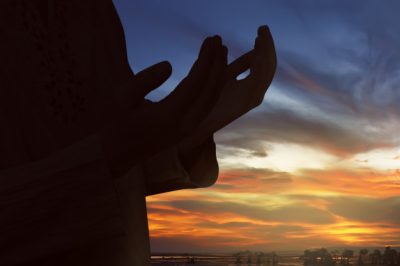Answer
In the Name of Allah, Most Gracious, Most Merciful.
All praise and thanks are due to Allah, and peace and blessings be upon His Messenger.
In this fatwa:
The majority of jurists allow Muslims to offer the qunut supplication during calamities and pandemics. Worshipers offer the qunut in order to repel harm and lift hardship.
Answering your question, the Resident Fatwa Committee (RFC) of AMJA states:
Qunut During Pandemics
The majority of jurists allow Muslims to offer the qunut supplication during calamities and pandemics in order to repel harm and lift hardship. The Hanafis, Shafi`is and some Hanbalis said that the plague specifically, and pandemics generally, are among the calamities for which we can offer qunut supplication in prayers.
The imam can say the qunut out loud. Those who follow the imam should say amen after each duaa.
When to Offer Qunut?
Worshippers can offer the qunut supplication after standing from bowing or before bowing (ruku), in the last rakah of any of the five prayers.
Some scholars maintain the we can say duaa al-qunut in the Fajr Prayer.
A third group of scholars view that we can offer the qunut only in those prayers where the recitation is out loud.
A fourth opinion is that Muslims can offer the qunut in other than the Friday prayer, since they offer the supplication during the sermon.
All of these opinions are valid, and imams can choose the opinion which suits them.
That being said, the qunut supplication is only allowed in obligatory prayers, not supererogatory ones.
What Duaa to Say During Qunut?
Furthermore, there is no single, particular version of the qunut supplication that worshippers must say. The person supplicating can choose a comprehensive supplication that is easy for him and incorporates asking Allah for protection, good health, and seeking refuge in Allah from the plague, pandemics, and hardships regarding oneself and one’s family, children, and wealth.
The supplication should only be regarding that specific calamity. It should also be short and not long, in accordance with what has been legislated in terms of not overburdening those following in prayer.
The Prophet (peace be upon him) used to like concise, comprehensive supplications, and he would avoid supplications that were other than that.
Almighty Allah knows best.
Source: https://www.amjaonline.org/

